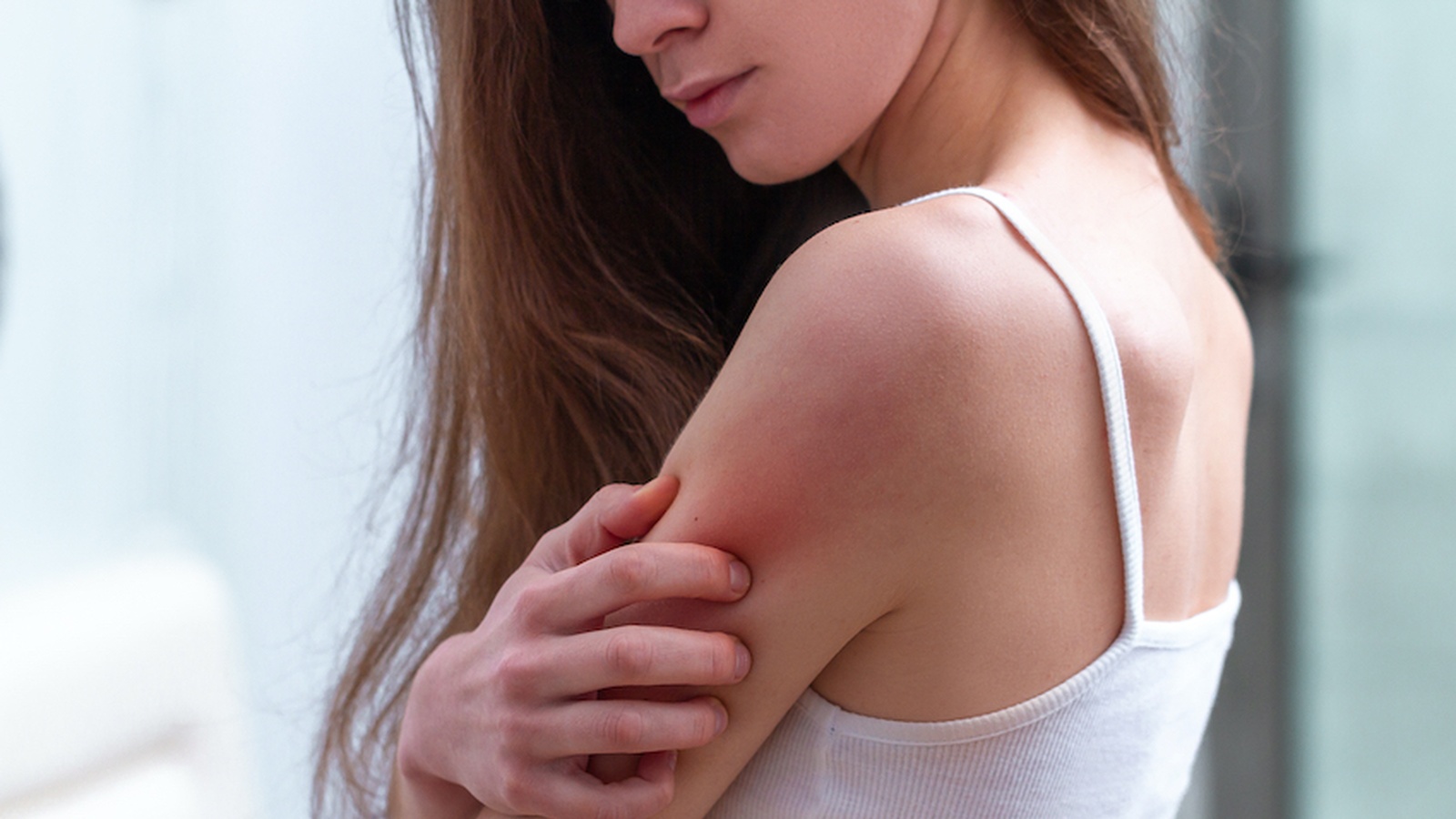6 Ways To Treat Psoriasis Naturally
Only those living with psoriasis will understand how truly debilitating the autoimmune disorder can be. As well as the long-term implications of living with the condition, the painful and insistent itch it brings can be enough to drive anyone crazy. But the battle is not lost. Mounting research shows that there are increasing ways to treat psoriasis naturally.
While psoriasis may appear to just affect the surface layer of your skin (still a very important defense layer of the integumentary system), it actually begins in the depths of your immune systems with a type of white blood cell. These T cells are designed to protect the body from infection and disease, but sometimes they can be accidentally triggered - leading to psoriasis symptoms of itchy, inflamed skin.
Currently, there is no cure for psoriasis, but the best form of treatment is learning ways to address individual triggers. Discover 6 ways to treat psoriasis naturally; because prevention is the best form of treatment.
1. Avoid Toxins; Smoking & Alcohol
Any habits that put a strain on your body or pump it with toxins are likely to trigger an immune response, as the body fights to maintain homeostasis - its sense of normality and balance. Any toxin abuse, or even light consumption, can put this already strained mechanism under duress. One study has even found that alcohol increases the risk of developing psoriasis, with women consuming nonlight beer being nearly twice as likely to develop the condition than those who didn’t drink.
2. Embrace Natural Dietary Supplements
This isn’t to say you need to pop another pill to feel better, but rather that there is an abundance of natural healing remedies you can begin to work into your diet. Foods that are soothing or anti-inflammatory in nature will begin to treat psoriasis from the inside. Fish oil, vitamin D, milk thistle, aloe vera, Oregon grape, and evening primrose oil are all recommended by the National Psoriasis Foundation to treat mild symptoms.
3. Reduce Stress & Anxiety
Stress and psoriasis can work in a vicious cycle to each worsen the effects of the other. Psoriasis can be a condition that causes a lot of mental and physical stress on the body, understandably. However, stress has been known to trigger psoriasis flares and further inflammation in the body. This is because mental stress produces a chemical reaction that boosts the inflammatory response. There are wonderful steps that can be taken to reduce the effects of stress, such as developing a yoga or meditation practice. You can explore other ways in our Food Matters guide, here.
4. Invest in Gentle Skincare & Natural Body Lotions
When combatting a condition that is directly impacting the health of your skin, it’s important to be nourishing and gentle to avoid any further irritation. This will include the skincare you use and anybody lotions or natural moisturizers. You may find soaking in a soothing bath with Epsom salts beneficial for relieving any symptoms. Some of the best products for your skin are made from natural ingredients; they’re chemical-free and make your skin feel radiant. Opting for an easy moisturizer like cocoa butter or coconut oil while having a flare will also counteract any irritation. If you’re looking for a new natural skincare brand, explore our favorites here.
5. Exercise to Reduce Risk for Other Conditions & Developing Psoriasis
While exercising may be painful when suffering from an itchy, flakey psoriasis flare, it’s important to counter the impact that the autoimmune condition may have on developing other diseases. Studies have shown that people living with psoriasis are at a greater risk of developing heart conditions, and others have shown (although it is unclear why) those that exercise regularly reduce their risk of developing severe psoriasis.
6. Clean Up your Diet from Food Triggers
Foods can be your greatest source of medicine if you let them. However, if your diet is rich in triggering, inflammatory foods, you’re not giving your body the best opportunity to heal. Diets rich in foods such as refined carbohydrates, saturated fats, red meats, and refined sugars are more likely to contribute to psoriasis development and flares. But it’s never too late to take the next step and remove these foods from your diet. If you’re looking for the initial push, a Juice Detox is the perfect place to start. Eliminating any difficult foods while giving your body a concentrated hit of nutrients may do the world of good for this autoimmune condition.
Are you struggling with psoriasis and managing your triggers? Share your experiences with our community in the comments below...
Do you have a passion for nutrition & natural healing?. Learn more about the Food Matters Nutrition Certification Program here.










